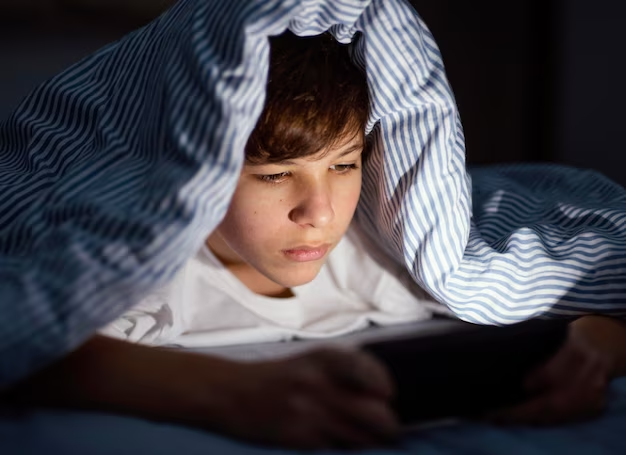In today’s digital age, technology has become an integral part of our daily lives. South African children, like children around the world, are increasingly exposed to various forms of technology, including smartphones, tablets, computers, and televisions. While technology offers numerous benefits and educational opportunities, it also has the potential to disrupt children’s sleep patterns and negatively impact their overall sleep quality. In this article, we will explore the impact of technology use on South African children’s sleep quality and discuss strategies for promoting healthy sleep habits.
- Blue Light and Sleep Disruption: One of the main ways technology affects sleep is through the exposure to blue light emitted by screens. Blue light can interfere with the body’s production of melatonin, a hormone that regulates sleep-wake cycles. Exposure to blue light in the evening can delay the onset of sleep and disrupt the natural circadian rhythm. Encourage children to limit screen time, especially in the hours leading up to bedtime.
- Delayed Bedtime and Sleep Duration: Engaging in technology use, such as playing video games or browsing social media, can lead to delayed bedtime. Children may become absorbed in their screens and lose track of time, resulting in insufficient sleep duration. Set clear boundaries and establish a technology curfew, allowing children enough time to wind down before bed.
- Increased Stimulus and Cognitive Arousal: Many digital activities, such as video games and online content, can be highly stimulating and mentally engaging. This can make it difficult for children to transition into a state of relaxation before sleep. Create a calming bedtime routine that excludes technology and encourages relaxation through activities like reading or listening to calming music.
- Sleep Fragmentation and Disrupted Sleep Patterns: The presence of technology in the bedroom, such as smartphones or tablets, can lead to sleep fragmentation. Notifications, messages, or the temptation to check social media can interrupt sleep and cause restless nights. It is advisable to establish technology-free zones in bedrooms to promote a more peaceful sleep environment.
- Psychological and Emotional Factors: Excessive technology use can contribute to emotional and psychological factors that affect sleep quality. Exposure to stimulating or distressing content, cyberbullying, or social comparison on social media can lead to increased anxiety, stress, or emotional arousal, which can interfere with falling asleep or maintaining sound sleep. Encourage open communication with children to address any concerns or anxieties they may have related to technology.
To promote healthy sleep habits among South African children, here are some strategies to consider:
- Set Limits: Establish clear guidelines for screen time and encourage children to engage in a variety of activities that promote physical exercise, social interaction, and creative play.
- Create a Technology-Free Bedroom: Keep technology devices out of the bedroom to create a sleep-friendly environment that promotes relaxation and reduces the temptation to engage with screens.
- Encourage a Consistent Sleep Schedule: Help children establish a regular sleep routine by setting consistent bedtimes and wake-up times, even on weekends.
- Teach Mindful Technology Use: Educate children about the potential impact of technology on sleep and teach them to be mindful of their technology use, promoting healthy habits and responsible digital citizenship.
- Model Healthy Behavior: Be a role model by demonstrating healthy technology use and prioritizing your own sleep hygiene. Children are more likely to follow suit when they see positive behavior from their caregivers.
By addressing the impact of technology use on sleep quality and implementing strategies to promote healthy sleep habits, South African children can enjoy the benefits of technology while also ensuring they get the quality sleep they need for optimal growth, development, and overall well-being. Encouraging a balanced approach to technology and sleep will support children in achieving better sleep and maintaining a healthy lifestyle.










